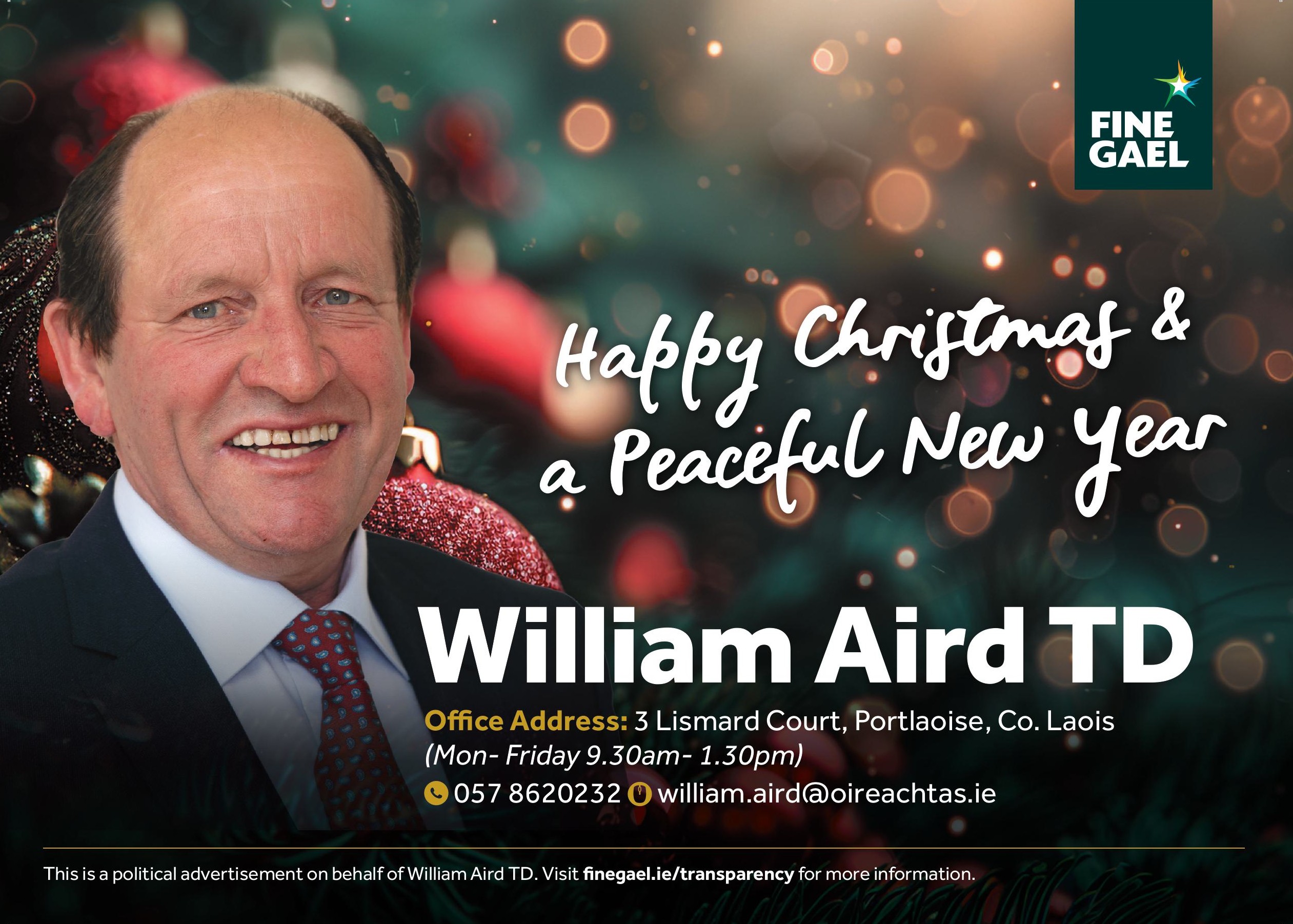My Life in Politics is a new weekly series on LaoisToday where we will chat with various local politicians – both past and present.
First up is Aidan Mullins, the Portarlington-based Sinn Féin councillor.
Aidan first ran for election in 2009 in the old Emo electoral area when he got 571 first preference votes.
Though he finished five votes ahead of Fine Gael’s James Deegan, he missed out on the fourth seat to Deegan on the 8th count.
He wasn’t to be denied five years later when he returned to top the poll in the new six-seat Portarlington-Graiguecullen Municipal District when was elected on the first count with 1,547 first preferences.
He was again elected on the first count in last year’s local elections when he increased his first preference vote to 1,614, though behind poll topper Padraig Fleming (Fianna Fáil).
In this interview, Aidan talks about his early political influence, how gets satisfaction from his role as a public representative and why the prospect of becoming a TD has never appealed to him.
What is your earliest political memory?
I lived and went to school in Ferbane in Offaly until I was 16 years of age as my father worked in the ESB Power Station there.
During the summer months I worked on local farms with my brother Tony, thinning beet, saving hay, cutting turf etc. We became very good friends, and still are to this day, with one particular farming family who lived in Moyclare a few miles outside Ferbane.
Paddy Barnes, his wife and their son PJ owned the tillage farm and I spent many long days listening mesmerised to Paddy telling me about his role in the Old IRA during the Rebellion and Civil War when he was on the run.
He introduced me to the politics of a Civil War Ireland and the rival political parties. Paddy was a brother of Peter Barnes from Banagher who, along with James McCormack, were wrongly convicted of a bicycle bomb in Birmingham and both innocent men were hanged in Winson Green Prison in February 1940.
Looking back now I realise that my earliest political memories and awareness come from those days with Paddy Barnes in the green fields round Ferbane. I couldn’t have asked for a better tutor or mentor.

What politician do you most admire?
One of the Irish politicians I would admire most is Seán Lemass. Often referred to as the father of modern Ireland, he played a major role in the industrialisation and economic growth of the country among other achievements. He was a TD for 45 years including time served as Tánaiste and Taoiseach.
In recent Irish history I believe that the legacy and leadership qualities of Martin McGuinness will stand the test of time as a patriot, peacemaker and selfless leader.
What is the contrast like between a ‘normal job’ and your role as a politician?
You are literally on call 7 days a week and your day may not end until after 10 pm some nights due to having to attend meetings or meet people to discuss a pressing issue they may have.
The work of a Councillor is very varied and covers a multitude of issues.
Quite a large amount of my work has actually nothing to do with the County Council e.g. problems with Social Welfare, drug problems, inability to pay bills, medical cards, JSA, Carers Allowance, SUSI grants, Working Family Payment, Disability Allowance and many other entitlements.
I think there is definitely a lot more job satisfaction working as a Councillor as opposed to a “normal job” and you are constantly learning.
Picture: Alf Harvey/hrphoto.ie
What is your favourite thing about being a councillor?
Having some bit of influence on the decisions and work programmes of the Local Authority which can benefit communities in the Municipal District.
You don’t get everything you look for but, in general, Council Management will work with Councillors within budgetary constraints.
You are in the privileged position of being able to help someone who needs some advice or assistance if only to fill out a form for them.
What’s the most frustrating thing about being a councillor?
This is particularly true in the construction of social housing where bureaucracy and burdensome procedures imposed by the Department can cause delays of a number of years before houses are built.
The public sector and private sector sometimes seem to work on different planets.
What if any changes would you like to see made to local government?
The powers of Local Government have been stripped back over the past 20 years or so.
The abolition of the old Health Boards and the privatisation of household waste collection are just two that come to mind.
The provision of social housing is now rapidly being handed over to Approved Housing Bodies.
Councillors now have limited or no influence over many departments and services (some might say that’s a good thing).
The current system of appointing Chairs and Vice Chairs to various Committees needs to be changed to a D’Hondt System which is fairer and prevents the exclusion of independent Councillors, smaller parties or groups from key positions.
A strange form of local “democracy” in action.
What advice would you give to anyone considering getting into politics?
I think it is a very difficult career for women particularly as it’s not family friendly and very time demanding.
There is a lot of public cynicism for obvious reasons, and often deserved, around politics and in the age of social media many politicians come in for harsh criticism and sometimes personal abuse. 

It’s not for everyone but if you choose it you need to fully commit to it and it can be very rewarding from a job satisfaction point of view.
Politics badly needs many more young men and women involved but it’s difficult to see what would attract them.
Would you like to be a General Election candidate at some stage down the line? Or would you have liked to have been previously?
I have absolutely no interest in contesting a General Election or in being a TD.
It was only by chance that I ended up as a candidate in the Local Elections in 2009 and wasn’t something I actively aspired to do.
Having said that I’m delighted to be a public representative and I’m honored that people put their faith in me to represent them.
Who do you consider as the greatest Laois person of all time?
There have been many notable Laois people in many spheres and walks of life. The one who stands out for me has to be James Fintan Lalor.
What four people – dead or alive – would you invite to a dinner party?
Billy Connolly. Frances Black. Keith Richards. George Best. Imagine the stories and entertainment at that table.




































